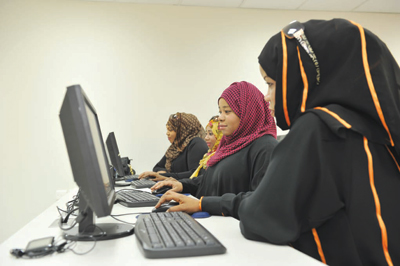News
Omanis keen to bridge gap between education and job requirements: Survey
Preliminary results of largest workplace study, QuduratTM, announced by Aon Hewitt says that despite ongoing efforts, Omanis continue to report lower levels of work engagement.

Preliminary results of largest workplace study, QuduratTM, announced by Aon Hewitt says that despite ongoing efforts, Omanis continue to report lower levels of work engagement. Nationals report lower levels of satisfaction with their education to support their work preparedness.
Omani nationals are keen to bridge the gap between their educational preparation and their actual job requirements, according to the preliminary findings of the ground-breaking QuduratTM research, announced by Aon Hewitt, the global human resources business of Aon.
QuduratTM is the largest workplace study in the region, focused on the advancement of national talent, the single biggest HR issue in the region. QuduratTM – meaning ‘capabilities’ in Arabic – is unprecedented in scope and scale, voicing the opinion of more than 20,000 employees across seven countries (UAE, Qatar, Kuwait, Saudi Arabia, Oman, Bahrain and Egypt). With final results expected to be announced region-wide by December 2012, insights from the study are expected to significantly impact HR practices and human capital development in the region.
The study was first launched in 2011, and produced many counter-intuitive findings which surprised and challenged the preconceptions employers had in the region about local talent and nationals in the workforce. Among the most unexpected findings were that Omani nationals reported lower levels of engagement in the public sectors than they did in the private sector, and that less than half had confidence in the most senior leadership in their respective organisations.
Growing disconnect
The preliminary results of this year’s report reveal that Omanis are reporting a growing disconnect between their job requirements and the preparation they have received for those requirements through their education, compared to foreign workers. In addition, Omani nationals continue to report lower levels of work engagement than expatriates, which could impact their longer term motivation, performance and productivity at the workplace. The report shows similar results for nationals across all seven countries involved in the study.
Commenting on these initial findings, Radhika Punshi, Aon Hewitt’s head of applied research (MENA) says, “As Oman’s and the region’s economy continues to recover, there will be a renewed and exponential growth focus on attracting, motivating and retaining top talent within all industrial sectors, with a greater emphasis on quality. However, more than ever before, there is a greater urgency for alignment and collaboration between the education system and the demand from employers.”
“Our early findings point to a pressing mismatch between education and employment, significantly impacting the motivation, expectations and preparedness of current and future employees towards their jobs. On a more positive note, the fact that there is an awareness among Omani nationals of this mismatch points towards a willingness to address this problem,” she added.
100 participating organisations
This year’s QuduratTM study already has over 15,000 responses from approximately 100 participating organisations in UAE, Qatar, Saudi Arabia, Bahrain, Kuwait, Oman and Egypt. The first wave of the study, concluded last year had over 4,600 respondents in total.
The study has also received strategic support through partnerships with a host of governmental organisations across the participating countries, including Abu Dhabi Tawteen Council, which spearheads the efforts of the Abu Dhabi government in sustainable Emirati workforce development. Other organisations which supported the study include TECOM Investments in Dubai, a diversified conglomerate with strategic investments in sectors that contribute to the development of Dubai’s knowledge-based economy; Tamkeen Bahrain, which is tasked with supporting Bahrain’s private sector and positioning it as the key driver of economic development and Bahrain’s Institute of Public Administration, which aims to enhance the skills and competencies of government employees in the Kingdom.
-

 Banking & Finance2 months ago
Banking & Finance2 months agoOman Oil Marketing Company Concludes Its Annual Health, Safety, Environment, and Quality Week, Reaffirming People and Safety as a Top Priority
-

 News2 months ago
News2 months agoJamal Ahmed Al Harthy Honoured as ‘Pioneer in Youth Empowerment through Education and Sport’ at CSR Summit & Awards 2025
-

 OER Magazines2 months ago
OER Magazines2 months agoOER, December 2025
-

 News2 months ago
News2 months agoAI Security Conference 2025 Hosted by Securado Highlights the Changing Cybersecurity Landscape
-

 Insurance1 month ago
Insurance1 month agoSupporting Community Wellness: Liva Insurance Sponsors Muscat Marathon 2026 with Free Health Checkups
-

 Interviews1 month ago
Interviews1 month agoEXCLUSIVE INTERVIEW: TLS Rebranding Marks Strategic Leap Toward Innovation, Sustainability & Growth
-

 Insurance1 month ago
Insurance1 month agoLiva Insurance Supports Community Wellness Through “Experience Oman – Muscat Marathon 2026”
-

 Investment2 weeks ago
Investment2 weeks agoLalan Inaugurates Its First Overseas Manufacturing Facility, Marking Sri Lanka’s First Investment in SOHAR Freezone






























You must be logged in to post a comment Login